Multimeter Maintenance
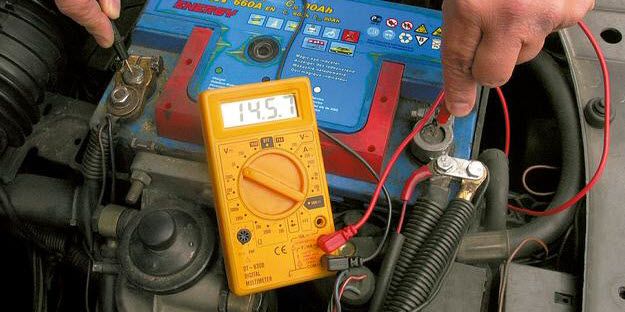
Digital multimeters have an internal battey, and it turns out that it can affect the accuracy of your readings. If your DMM is more than a few years old, a fresh battery and quick calibration are easy maintenance tasks.
How it Happened to Me
I had some lipo cells that I was charging with a TP4056, which is just a really small charge controller designed for lipo batteries. The TP4056 overcharge protection stops charging when the battery voltage has reached 4.20V, +/- a margin of accuracy. Basically it should never go above 4.24V at the very most. That's getting into the red zone. Overcharging the cell beyond a safe voltage is the culprit in a vast majority of lipo fires/explosions.
This situation shows why it's important to measure voltage accurately to at least tenths of a degree. I was checking the final charged voltage of a charged cell, and it read 4.54V! Holy crap - I thought it was about to explode in my face!
I was thoroughly confused because the overcharge protection would had to have failed majorly. I grabbed a bag of cheap LED voltage meters off my bench and they were all showing a voltage of about 4.10V on average. Checking the outputs of a PC power supply all showed inflated voltages, with the 12V line reading 13.35V. WTF?
How could my multimeter be so wrong? So significantly wrong.
Cheap DMMs
It's not like I paid a lot for this, probably $15 on Amazon. It's not auto-ranging or anything fancy. There are bazillions of these out in the world which hopefully were tested when they came off the assembly line.
I quickly located several good blog posts demonstrating how to locate the trim potentiometer inside the back of the meter thats used to calibrate the meter. It seemed easy enough, so I popped off the back cover and found the calibration knob
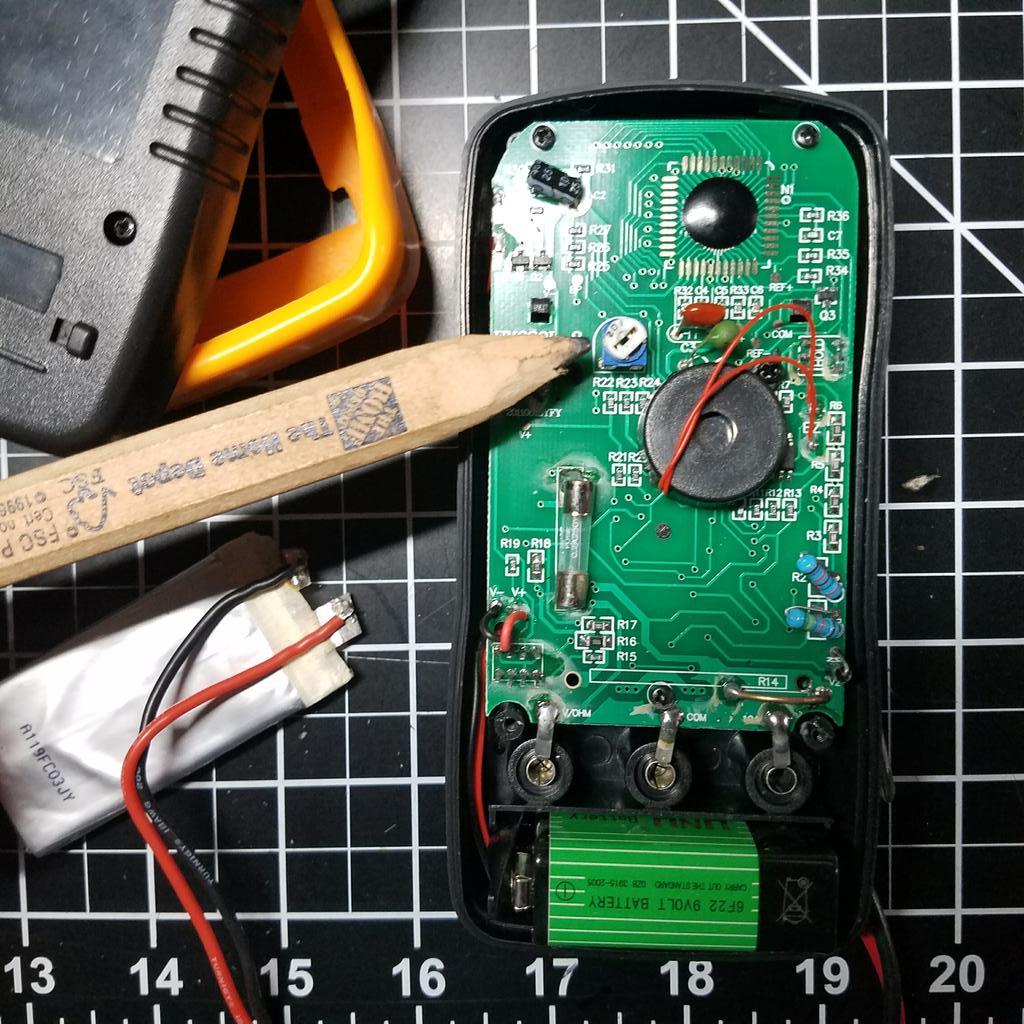
Voltage References
I realized that I would have to find something of a known voltage in order to do an accurate calibration, so I decided on a PC power supply. I figured that it would be fairly accurate, and that assumption was difficult to confirm or deny.
I hooked everything up and started to tweak the knob, but it quickly came to the end of it's range and broke off. Luckily I was still able to adjust it, but I was confused why it was so far out of spec. ( In retrospect, hitting the low/high end of a calibration knob should raise other questions...)
What Gives?
Well, it turns out that a low battery can ( counterintuitively ) cause an incorectly high voltage reading. In my case it was about +0.35V
I tested the 9V battery inside the meter ( with another meter ) and it was only 3.2V. Doesn't this thing have a "low battery" warning?
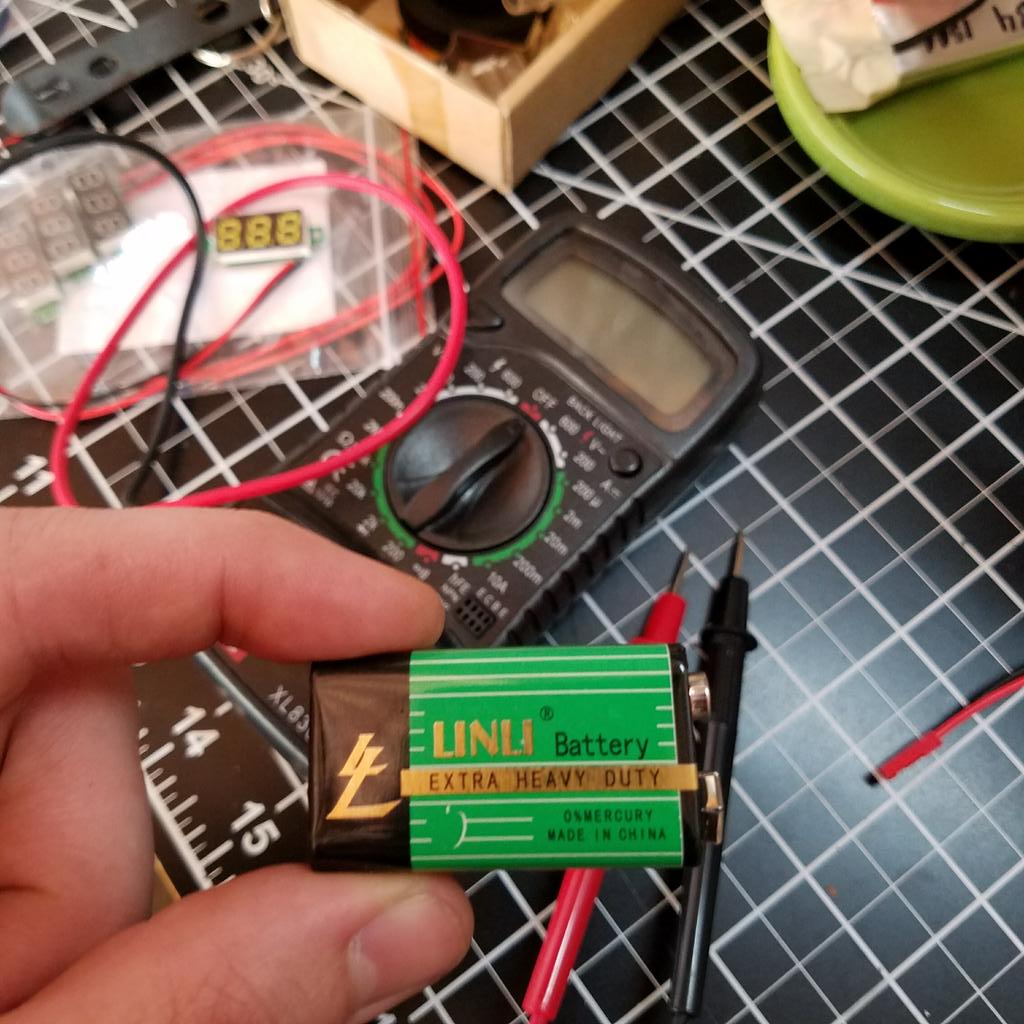
In retrospect, I should have thought about the battery, I knew it was several years old. Replacing it with a tested 9V cell immediately produced lower voltage readings, confirming this as a solution.
The simplest solution is often the solution - but only if you think of it.
So now that I had broken off the calibration knob for no reason and lost faith in all voltage readings, how could I get back on track? It turns out that there are small 'voltage reference' modules available that are calibrated and tested to provide known voltages for this purpose. I found one for $10 on Amazon that appears to actually have been tested by a human being.
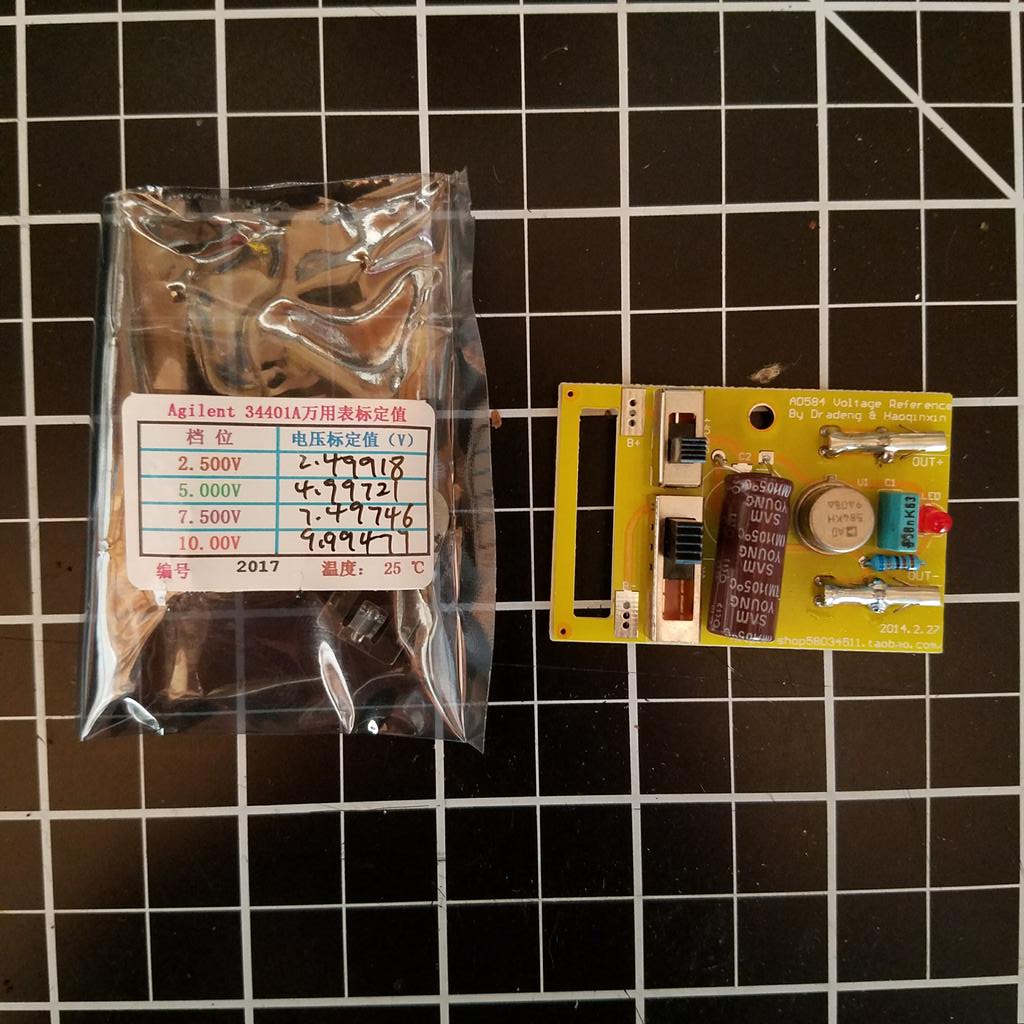
This thing will output 2.5, 5.0, 7.5 or 10 volts, which allows an easy way to test across a range of voltages. With a fresh 9V battery, I could now determine how far off the mark I truly was:
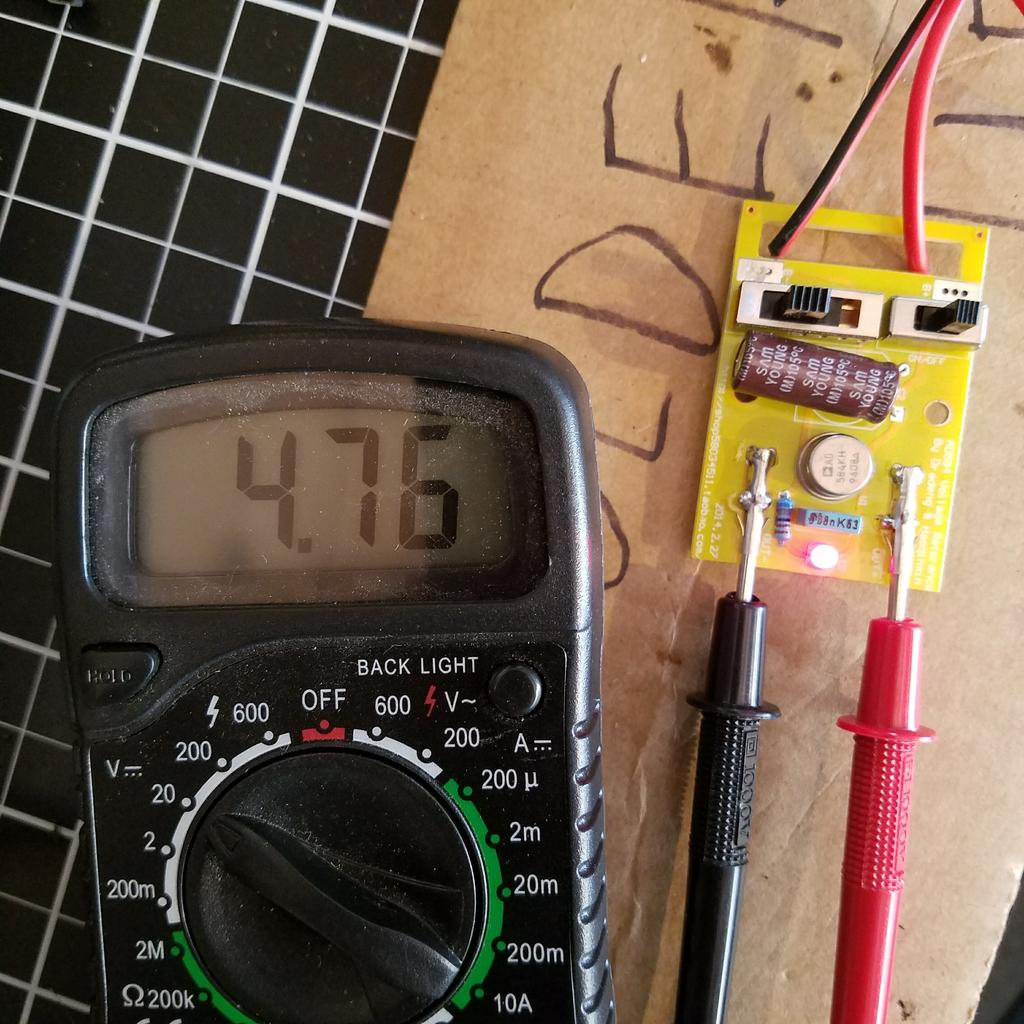
Luckily I'm still able to adjust the potentiometer with the broken knob. Once calibrated to the 5V reference, the readings were consistently accurate on all reference voltages ( +/- 0.02V ). This is accuracy I can work with.
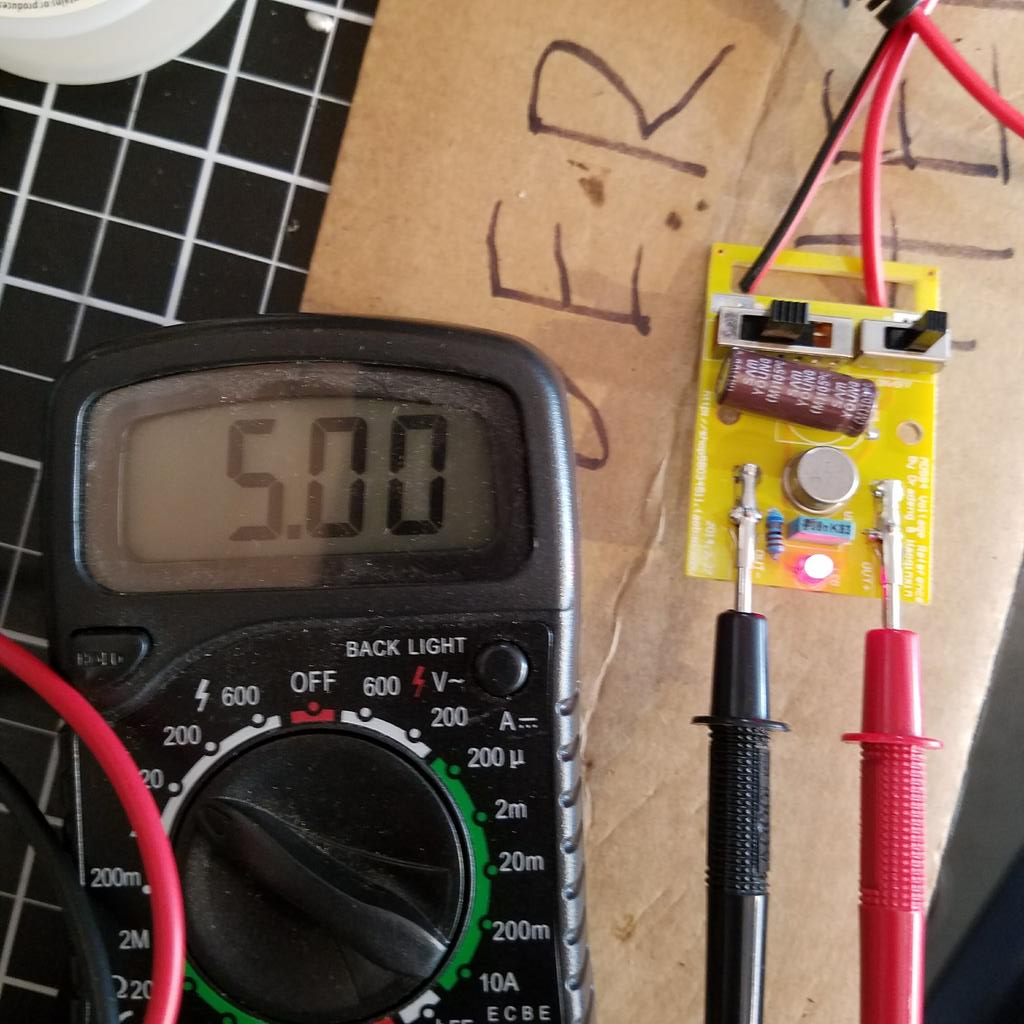
Lessons Learned
It seems like these cheap DMMs don't have a 'low battery' warning, or at least they go far out of spec before a warning is shown / stop working. If yours is more than 3? years old you should probably just replace the battery.
If you're going to use a cheap DMM, consider investing in a voltage reference and checking yoru meter's battery on an annual basis. If accuracy to the hundreth of a volt is imporant to you, maybe consider a better meter. This process taught me that while tenths of a volt might be significant, some care needs to be taken to ensure that readings are actually that accurate.
